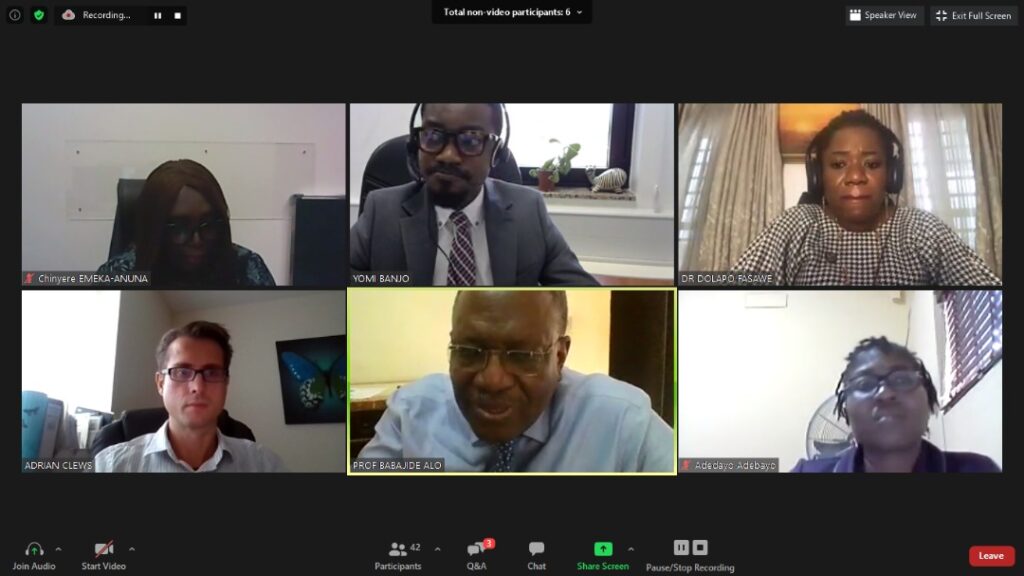Funke Busari, Lagos
Environmental experts on Thursday lamented that 53.6 million metric tonne, MT, of Electronic Waste generated worldwide were lost to placement in landfill, burnt or illegally traded and treated in a sub-standard way.
The experts also called for effective legislations to mitigate the associated environmental health risks.

This was made known during a two-day virtual webinar session, themed: Opportunities In Achieving Circularity In The Electrical Electronic Equipment Sector of the state to mark the year 2020 International E-waste Day celebration in collaboration with United Nation Information Centre, UNIC, International Labour Organization, ILO, United Nations Industrial Development Organization, UNIDO, Federal Ministry of Environment, National Environmental Standards and Regulations Agency, NESREA, E-Waste Producer Responsibility of Nigeria, EPRON, and Fabe International Foundation.
The Permanent Secretary, Ministry of the Environment and Water Resources, Mrs. Ronke Odeneye, in her keynote address, revealed that the UN in 2019 declared that 17.4% of global E-Waste was collected and recycled, while 53.6 million MT of electronic waste generated worldwide were placed in landfill, burned or illegally traded and treated in a sub-standard way.
Adding that in 2019, 461.3kt was generated at a rate of 1.7 tonnes in Nigeria, revealing increase of 81% against the 277kt generated at a rate of 1.5 tonnes in 2017.
“The circular economy has such benefit such as reducing pressure on the environment, improving the security of the supply of raw material, increasing competitiveness stimulating innovations boosting economic growth and creating jobs. Solving the E-waste menaces starts with education, advocacy, sensitization, attitudinal change and a circular economy approach to the electrical and electronic equipment sector through sustainable recycling that aims to reduce the dangers that disposed and dismantled electronics can cause to human health and the environment, she stated.
The General Manager, LASEPA, Dr. Dolapo Fasawe in her welcome address, observed the opportunities and challenges inherent in circularity of the sector and need for collective effort to achieve set out goals and also establish solutions to mitigate the associated environmental health risks as objective for the establishment of International E-waste Day, IEWD.
“We aim to use this program as a launch pad to foster stakeholders’ involvement through building key partnerships and collaborations. To further promote Government’s efforts on recycling, proper E-waste management and also encourage consumers to employ sustainable management of E-waste due to high levels of E-waste generation, improper and unsafe treatment and disposal through incineration or in landfills with significant challenges to the environment and human health,” Fasawe averred.
According to her, the agency focused on educating the younger generation as agents of change by organizing quiz competitions and debates amongst primary and secondary schools with the determination to ensure sustainable practices which will impact negatively on the environment and thereby protect and improve the environment.
Environmentalists which incudes, Prof. Innocent Nnorom, Mrs. Olakitan Oluwagbuyi, Mr. Adrian Clews and Mr. Yomi Banjo all agreed that implementation of eco-friendly policies would reduce negative impact on the climate.



